- Home
- David Dalglish
Dawn of Swords Page 4
Dawn of Swords Read online
Page 4
“They’re back!” shouted the voice of a young boy. “Jacob and the kinglings!”
A crowd gathered, running alongside their mounts as they made their way down the uneven road. The people called out to them, cheering for each of the kinglings in turn. Jacob glanced at them, taking in the hope on their faces. Geris waved, and even Ben’s spirits seemed to lift, if only a little. Someone shouted out Martin Harrow’s name, but none of those who gathered let their gaze linger on the sack draped over the rear donkey.
“Where is he?” asked a woman’s voice. “Where is Kingling Harrow?”
Jacob peered over his shoulder to see that there was still a smile on the querying woman’s face. She did not understand. None of them did. Around here, with Ashhur, the Wardens, and the healers tending to the wounds and ailments of the populace, unnatural death was unheard of. In western Dezrel, over the span of ninety-three years, no one had perished before his or her time.
Jacob had a feeling that was about to change.
The crowd gradually thinned as the land sloped downward, and Jacob and the kinglings entered the Cavern of Solitude, a tapered passage cut through the middle of a foreboding hillock. Jagged spires of stone protruded from the sides of the cliff, narrowing the road. Jacob was grateful that it was still daylight, as the passage could prove treacherous when traversed in the dark. The cavern was guarded by the great statue of Ashhur, a twenty-foot behemoth carved into the side of the red clay cliff. The deity’s statue stared down at them as they passed beneath it, his left hand holding an olive branch to the heavens, his right hand crossed over his immortal heart. Jacob heard Ben whistle a quiet lullaby as the statue disappeared behind them—the very same lullaby the god himself had sung to the kinglings on the night they were anointed.
When they exited the Cavern of Solitude, the horizon stretched out before them. Clay huts and lean-tos constructed of desiccated animal hides peppered the land. From these abodes more people emerged, forming an assembly in front of the colossal building at the center of it all—the Sanctuary itself, forty feet high and circular, built with smoothed stone from the northwest coast. It was the only building in Safeway, and the tallest in all of western Dezrel. On its sloped crest, above the solarium, was etched the Golden Mountain of legend, the final, peaceful resting spot of the spirits of the dead in Afram. Below that were etched Ashhur’s two guiding principles, both of them concepts to revere and commands to obey: Love and Forgive.
Jacob saw the Marylls and Felhorns emerge from their crude domiciles, making their way toward the passageway that was cut into the short wall bordering the Sanctuary. He searched for the unmistakable bald pate of Stoke Harrow, Martin’s father, and eventually found the burly man in the crowd. He was wearing a burlap robe and pulling his wife Tori along. Soon the families of all three kinglings stood front and center, waiting with wringing hands and expressions overwrought with excitement.
At the edge of the gathering, Jacob veered his mare off to the side and dismounted. He tapped the horse’s flank, and it began to saunter away obediently. He then helped Ben and Geris down from their donkeys. The two boys immediately found their families, who were waiting with open arms, and ran to them.
The Harrows stood confused, their gazes shifting from the other two kinglings to Jacob and then to the wrapped carcass atop the third donkey. Hesitantly, Jacob approached it, gesturing for Stoke Harrow to come forward. The large man did as he was bidden, that perplexed expression still smeared across his face. Tori followed meekly, hands clenched over her mouth. Jacob lifted one end of the bulk, untied the rope, and pulled back a flap of fabric. The pale face of Martin Harrow emerged, mouth slightly agape, eyes sewn shut. His cheeks were sunken, and his red hair had lost its luster. The scent of rot wafted off the dead child, the result of three days riding in the sweltering southern heat. Jacob cringed and pinched his nose shut while Stoke’s face twisted into a manifestation of stupefaction.
Tori shoved past her husband, and Jacob backed away, letting her grab hold of the dead boy’s shoulders.
“Martin?” she whispered, lifting the child’s head. She shook him, hard, and his body flopped like a dead fish on the saddle. Her eyes brimmed with tears as she took in the reality of the situation. Her husband was behind her the next instant, his strong hands on her back, holding her up. Tori spun around and buried her face in his chest. Stoke wailed in disbelief as his wife’s tears saturated his burlap robe. The cry she released was shrill in its anguish, threatening to shatter the hearts of all who heard it.
The Marylls and Felhorns gathered around the weeping parents, embracing them, consoling them in the only way they knew how, while the rest of the throng stood in shocked silence. Suddenly, Stoke Harrow’s head shot upward, and he fixed Jacob with a murderous stare. The anguished father stepped away from the other grievers, his meaty hands balled into fists. The tears that ran from his eyes created ravines on his muddy cheeks.
“You were supposed to protect him!”
Jacob stood his ground as the larger man stormed across the narrow space between them. He never flinched, not even when Stoke’s arm cocked back, the rage in his eyes burning as hot as the sun.
“Stop!” said a voice like booming thunder.
Stoke’s arm fell mid-swing. The man’s shoulders hunched as he turned around. Jacob glanced up at the Sanctuary. The great door was open, and now children were streaming out of it, filing down the cobbled path and into the milling crowd. A giant figure ducked beneath the doorframe, stepping out of the darkness and into the light. He was as tall as two men standing atop each other. His broad shoulders looked capable of carrying the world upon them, and yet all they held up was a gown made of glimmering white silk. On the front of the gown was stenciled a mountain surrounded by a field of red roses. His beard was trimmed but pronounced, and his blond hair, cut shoulder length, swooped back from his skull like a wave receding into the ocean. His eyes, golden as sunlight, seemed to see everything at once.
Jacob stepped away from Stoke, bowed on one knee, and placed his right fist over his heart.
“My Lord Ashhur, I beg your pardon,” he said. The rest of those gathered, save the children who had exited the Sanctuary, fell to their knees.
The god-made-flesh offered Jacob a nod as he stepped with a single stride over the low wall surrounding the Sanctuary. The crowd parted before him, shuffling sideways on their knees, as their god approached the still-weeping couple. Ashhur placed his index finger gently on the forehead of their dead son, and then lowered himself and wrapped both arms around the grieving parents. Stoke began sobbing anew, until his mood shifted back from sorrow to fury.
“Why did you let this happen?” he kept repeating, driving his fists into Ashhur’s enormous knee. The god touched the man’s chin with his palm—the sheer size of his hand swallowed Stoke’s entire skull—and the outburst ceased.
“Let us speak in the Sanctuary,” he said, his voice still booming across the countryside.
The god led the Harrows into the tall edifice, and the donkey carrying Martin’s body was ushered in after them. When they were gone, the crowd looked to Jacob for instruction. He waved them away as kindly as he could, and they dispersed. Geris Felhorn was the last to leave, staring at him for a while before relenting and finally joining his parents on the short walk back to their domicile.
Jacob breathed heavily out his mouth, making his way in the opposite direction. He followed the dirt path along the west side of the Sanctuary wall, where the path broke away from the structure and passed through a field of wildflowers. Unlike the roads into and out of Safeway, this path was smooth, flattened by the constant foot traffic. Not many people left, after all. The land—along with Ashhur himself—supplied them with all they needed. There was a reason that the west had been named Paradise by the people who lived there.
He trotted down a gulch, and the sound of crashing waves reached his ears. The sun dipped low on the horizon, and the sky lit up in a brilliant shade of purple. A cabin of rough
-hewn stone came into view, the straw of its roof bristling with the gentle sea breeze. Jacob had purposefully built his home far away from the Sanctuary to allow himself respite from the prayers that rang out seemingly without end. He was rarely visited, and when he was, it was usually by the Sanctuary stewards coming to tell him that Ashhur required his presence.
As he approached, he noticed that a ladder was propped up against the side of the cabin. A figure was braced on the top rung, applying a layer of wet tar to the areas where the roof had grown thin. He was a handsome man of twenty years, stocky of build and good with his hands.
“Hello, Roland,” Jacob said to his steward.
“Hello, Master Jacob,” Roland replied. He never took his eyes off his work. “I wasn’t expecting you back until next week. How were things in Haven?”
Jacob stopped once he reached the side of the ladder. “They were…not well.”
Finally Roland gazed down.
“You wish to speak of it?” he asked, his piercing blue eyes glinting between strands of his sandy-brown hair.
“Not at the moment. How goes the labor?”
“Laboriously. I set out grain for the chickens, milked the cows, and helped Fela Felabosi construct a new shelter for his son Bronta. The boy is expecting a child soon and wanted to strike out on his own. I just started the household chores an hour ago.”
“It’s late, son. Your work is done for the day.”
Roland gave him a queer look.
“Are you sure? There are three more weak spots on the roof, and I haven’t begun mortaring the loose stone on the eastern wall.…”
Jacob chuckled. Roland didn’t like stopping before his work was complete, which was an honorable characteristic. Not many in the west shared the boy’s work ethic, perhaps not even Jacob himself.
“It’s fine. If it showers tonight, I will set out a bucket. Go home. Get some rest. I will see you on the morrow.”
Roland hopped off the ladder and then lowered it to the grass. Despite his nonchalant attitude, Jacob could tell he was intensely curious about his master’s trip to Haven.
“So, tomorrow we will speak of what happened, yes?”
“We will. I promise you.”
The boy smiled, and just like everything else about him, it was beautiful.
“I bid you good night then, Master.”
With that, Roland bowed before turning tail and sprinting up the path, heading back into Safeway. Again Jacob chuckled. Over the nine years the boy had served as Jacob’s steward, he had headed for home in that exact same manner each evening. His energy was awe-inspiring.
It was energy Jacob could have used at the moment. Suddenly his arms felt too heavy, his knees too weak. He slumped his shoulders, turned around, and pulled open the door to his cabin. Stepping inside, he found the embers of a recent fire, glowing in the inglenook. Above it, resting on an iron rack, was a steaming pot. He dipped a finger inside. Roland had left a meal for him—rabbit from the smell of it. His stomach cramped as he licked his finger; then he grabbed a wooden bowl from the niche above the inglenook and ladled himself a helping.
The soup was warm and spiced with lemongrass and sage, which made it taste a tad sour. He gulped down mouthful after mouthful, feeling his hunger pangs decrease with each swallow. Making his way to the window, he pushed open the shutters with his free hand, allowing the breeze to tickle his flesh. The stifling heat from the embers was slowly whisked away.
When he finished eating, he went to his desk on the far side of the room. The desk had been a gift from Norman Astencroft, the lone carpenter to take up residence in Safeway. Norman wasn’t particularly skilled, and the ash desk wasn’t particularly well made, but it served its purpose. That was all Jacob could really ask for.
Setting aside his bowl, he reached beneath the desk and pulled out a leather-bound book. He placed it on the flat surface, wiped dust from the cover, and undid the iron clasp. The food might have settled his stomach, but it had done nothing to stifle his exhaustion from riding three days straight with little sleep. Nor did it calm the dissonant thoughts running through his mind. He had not yet decided what he would tell Ashhur about the events at the temple. His hand shook as he took out a folded piece of paper from the inner pocket of his tunic, flipped open the cover of the book, and turned until he reached a blank page.
He unfolded the paper and began inscribing the words written on it. With each letter he formed, he sensed his fatigue—and his anger—lessening. It was as if documenting his adventures and discoveries in his journal was setting his soul afire. Other than serving his god, this was what he lived for: unlocking the mysteries of the world, slowly assembling the building blocks of life in Dezrel, one word at a time.
His earliest entries had originally been written on the huge leaves of the barrow elms that grew atop Mount Ire in the northwest, using excretions from nightworms as his ink. It wasn’t until his twenty-fourth year, when Ashhur showed his people how ink could be made by mixing iron salts with gallnut tannins, that Isabel DuTaureau, the matriarch of House DuTaureau of Mordeina, had had this particular tome created for him.
The journal was filled with oddities—descriptions of plants and animals beyond number. He chronicled humanity’s progress, from their early days as youths under the watch of the Wardens to the time when those in the east began to earn their independence. The chronicles also served as a comparison of the burgeoning cultures in the east and west, both their similarities and their vast differences.
Though magic was sparse within Paradise, used only to heal the sick and urge crops to grow, the study of it was what interested Jacob the most. Page after page of his journal was scrawled with psalms, ingredients, runes, powerful words, and the laws of tribute. One could open the book to any random page and discover something wonderful: practical magic, such as how to conjure food from topaz or create a bubbling stream with onyx dust; earth magic, derived from the elves, about how to divine power from the molecules in the air itself to form balls of fire, shards of ice, or even cause plant life to obey commands; astral magic on how to bend time and space to travel between two points in an instant; psychic magic, explaining how to use the power of one’s mind to manipulate physical objects on a whim or commune with others over great distances, using select totems, such as sea-worn copper or dragonglass. There were also vast sections on metallurgy, botany, chemistry, astrology, and what he had learned about the inner workings of the human mind. Rarest were the segments dealing with blood magic, an ancient form of conjuring that existed only in the legends told to him by the elves.
According to those legends, two millennia ago there were three demon kings—Darakken, the thunder lord; Velixar, the beast of a thousand faces; and Sluggoth, the slithering famine. When they ascended from the underworld, they brought terror to the elves. A war lasting a hundred years ensued, until Celestia, apparently upset that these hellbeasts were laying waste to her creations, sent the demons and their minions back to the underworld and locked it up tight. The demons were said to have possessed great mystical abilities. Through their words and strength of will they could control the dead, inflict insanity upon all who gazed on them, and rip apart a living body and reassemble it as they pleased. Their story fascinated Jacob. He wanted more than anything to discover the truths hidden within the legends, to inscribe the words of these beasts’ ancient magic in the pages of his tome. Sadly, barring a few obscure carvings in the crypts of Dezerea, there was no hard evidence that the demon kings had been anything but bedtime stories. The section on them in his journal was maddeningly sparse.
His current work for the night dealt with medicinal herbs. Living in the west meant a life free from disease and physical maladies, so it intrigued him how those in the east—and in Haven—got through each day with all the potential dangers surrounding them. He had catalogued all the different herbs and their uses, both medicinal and recreational, from poppy to crimleaf to the silia fungus. During his visit to the Temple of the Flesh, he’d spoke
n with the priestess Aprodia, who had told him that by sucking the milk from the large seeds of nectarines, her people avoided the Wasting that inflicted many throughout the east. That information might not have much practical use in Ashhur’s Paradise, but Jacob was nothing if not fastidious, so into the book it went.
He was in the middle of writing his last word of the evening when a board creaked behind him. The quill halted mid-stroke, and he cocked his head. All was quiet but for the whistling of the wind through the open window. Just then, something grabbed the back of his hair, forcing his head back. Sharp steel pressed against his throat. He reached for the skinning knife he kept tucked into his belt, but it was no longer there.
“Looking for something?” asked a low, mocking voice.
“It seems I have misplaced my knife,” Jacob replied, calm as could be. “You wouldn’t happen to have it, would you?”
“I might.”
“Please be careful. The blade is quite sharp.”
The voice snickered, and the knife was pulled away from his throat. The hand dropped from his forehead, silken fingers tracing a sinuous line down his cheek.
“So many apologies, kind sir,” the voice said, now sounding high-pitched and childish. “I knew not.”
Jacob stood from his chair and turned around slowly. The corners of his mouth rose into a sad grin when he saw the elf girl standing there.
“Brienna, one of these days you might actually hurt me. I may not age, but I’m not indestructible, you know.”
“I wouldn’t have broken the skin. Where’s your sense of humor?”
He shook his head. “It seems to have abandoned me this night. Forgive my lack of charm. You took me by surprise, Bree. Shouldn’t you be at the homestead, preparing for the engagement?”
“I reckon my sister could do without my company for a few nights. There are only so many flower arrangements a girl can make, and to be honest, I have no desire to spend time in Dezerea. Our cousins there are so…stuffy and staid.” She clucked her tongue. “Now I ask, would I not be of more use to you here?”

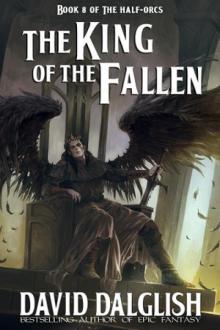 The King of the Fallen
The King of the Fallen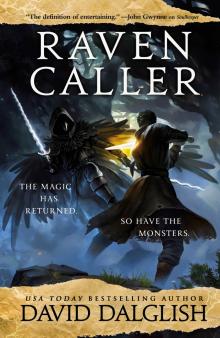 Ravencaller
Ravencaller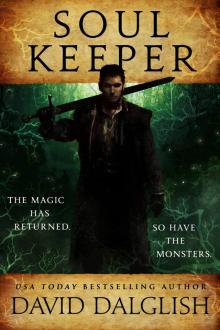 Soulkeeper
Soulkeeper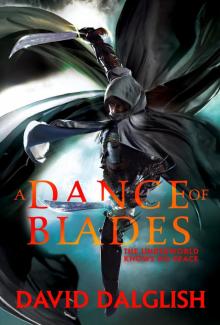 A Dance of Blades
A Dance of Blades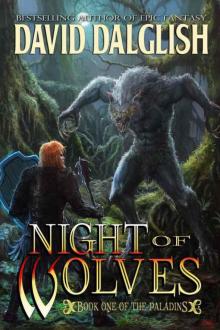 Night of Wolves p-1
Night of Wolves p-1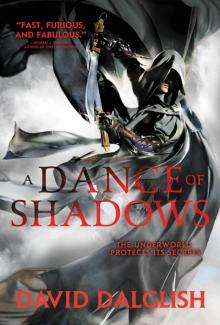 A Dance of Shadows
A Dance of Shadows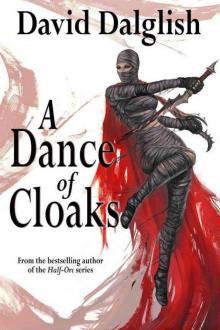 A Dance of Cloaks s-1
A Dance of Cloaks s-1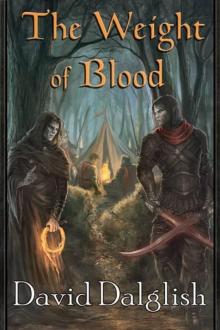 Weight of Blood
Weight of Blood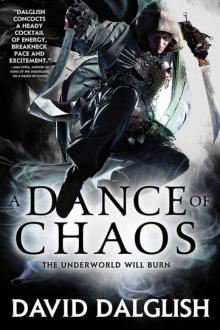 A Dance of Chaos
A Dance of Chaos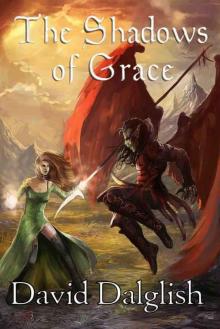 The Shadows of Grace h-4
The Shadows of Grace h-4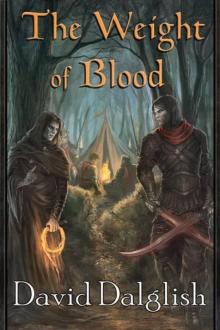 Weight of Blood h-1
Weight of Blood h-1 The Broken Pieces
The Broken Pieces The Shadowdance Trilogy
The Shadowdance Trilogy A Dance of Death (Shadowdance Trilogy, Book 3)
A Dance of Death (Shadowdance Trilogy, Book 3)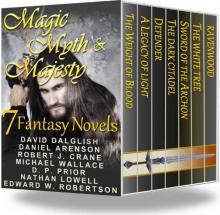 Magic, Myth & Majesty: 7 Fantasy Novels
Magic, Myth & Majesty: 7 Fantasy Novels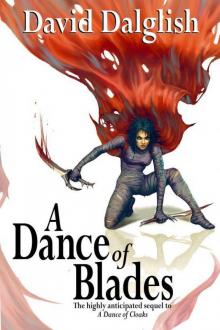 A Dance of Blades s-2
A Dance of Blades s-2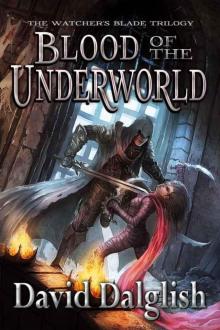 Blood of the Underworld
Blood of the Underworld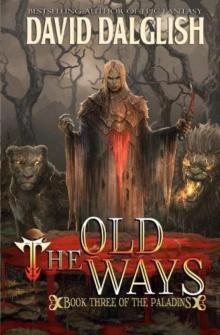 The Old Ways p-3
The Old Ways p-3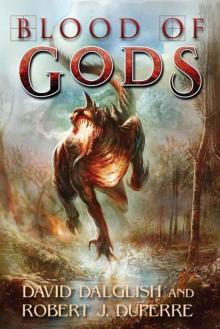 Blood Of Gods (Book 3)
Blood Of Gods (Book 3) Shadowborn
Shadowborn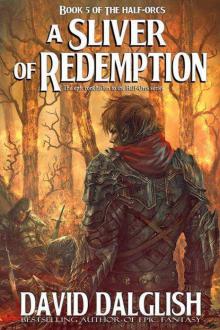 A Sliver of Redemption (Half-Orcs Book 5)
A Sliver of Redemption (Half-Orcs Book 5)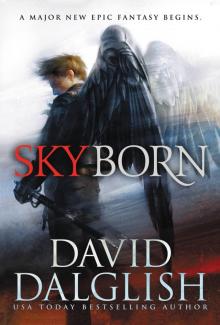 Skyborn
Skyborn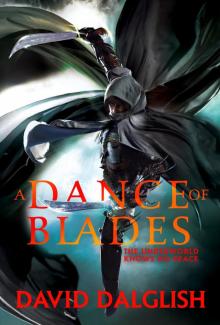 A Dance of Blades (Shadowdance 2)
A Dance of Blades (Shadowdance 2)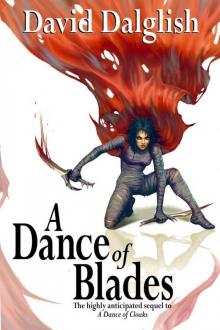 A Dance of Blades, (Shadowdance Trilogy, Book 2)
A Dance of Blades, (Shadowdance Trilogy, Book 2)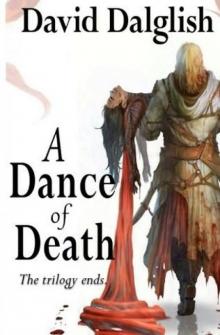 A Dance Of Death s-3
A Dance Of Death s-3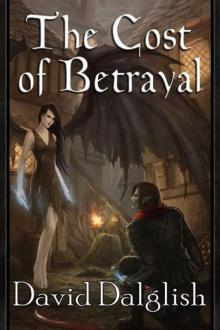 The Cost of Betrayal (Half-Orcs Book 2)
The Cost of Betrayal (Half-Orcs Book 2)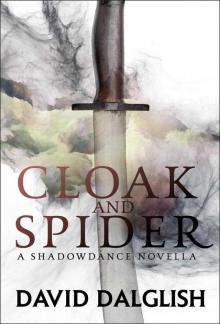 Cloak and Spider: A Shadowdance Novella
Cloak and Spider: A Shadowdance Novella The Paladins
The Paladins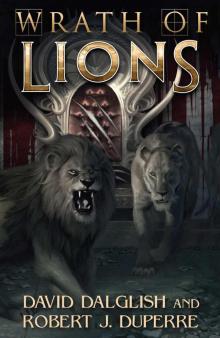 Wrath of Lions
Wrath of Lions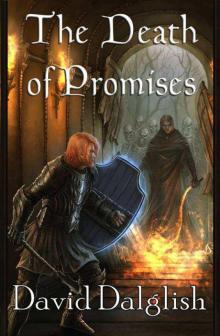 The Death of Promises (Half-Orcs Book 3)
The Death of Promises (Half-Orcs Book 3)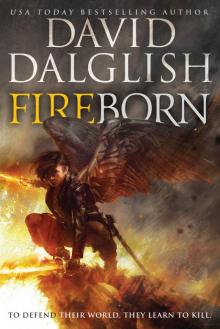 Fireborn
Fireborn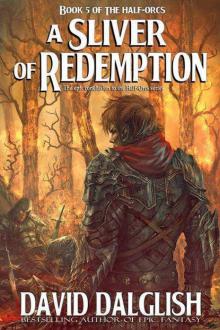 A Sliver of Redemption h-5
A Sliver of Redemption h-5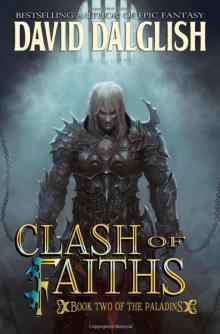 Paladins 02 - Clash of Faiths
Paladins 02 - Clash of Faiths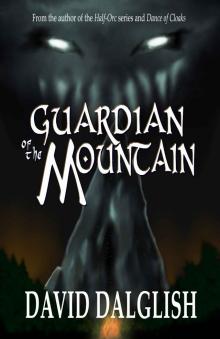 Guardian of the Mountain
Guardian of the Mountain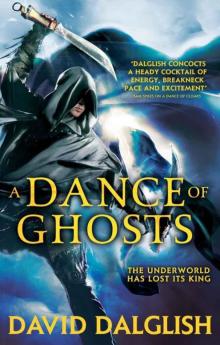 Shadowdance 05 - A Dance of Ghosts
Shadowdance 05 - A Dance of Ghosts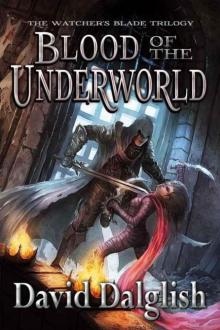 Blood of the Underworld twb-1
Blood of the Underworld twb-1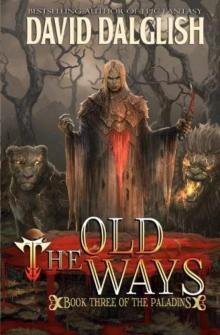 Paladins: Book 03 - The Old Ways
Paladins: Book 03 - The Old Ways Dawn of Swords
Dawn of Swords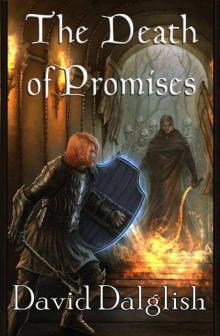 The Death of Promises h-3
The Death of Promises h-3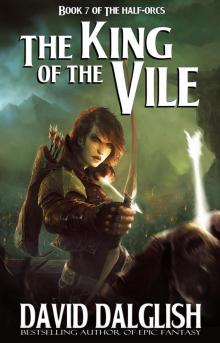 The King of the Vile
The King of the Vile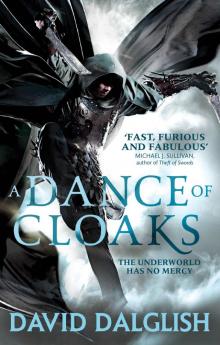 Shadowdance 01 - A Dance of Cloaks
Shadowdance 01 - A Dance of Cloaks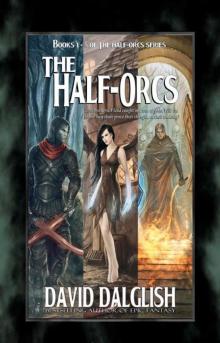 The Half-Orcs: Books 1-5
The Half-Orcs: Books 1-5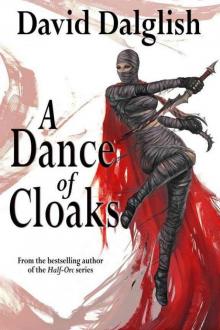 A Dance of Cloaks
A Dance of Cloaks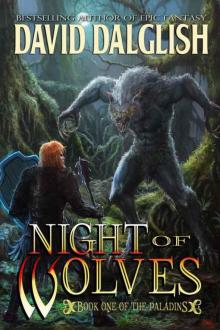 Paladins 01 - Night of Wolves
Paladins 01 - Night of Wolves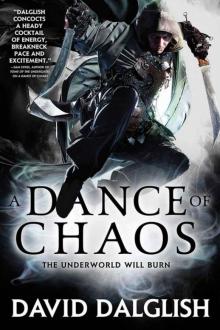 A Dance of Chaos: Book 6 of Shadowdance
A Dance of Chaos: Book 6 of Shadowdance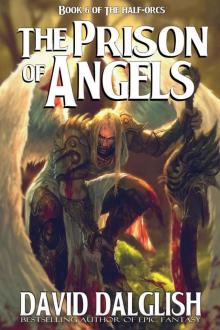 The Prison of Angels h-6
The Prison of Angels h-6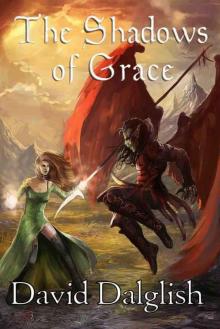 The Shadows of Grace (Half-Orcs Book 4)
The Shadows of Grace (Half-Orcs Book 4)